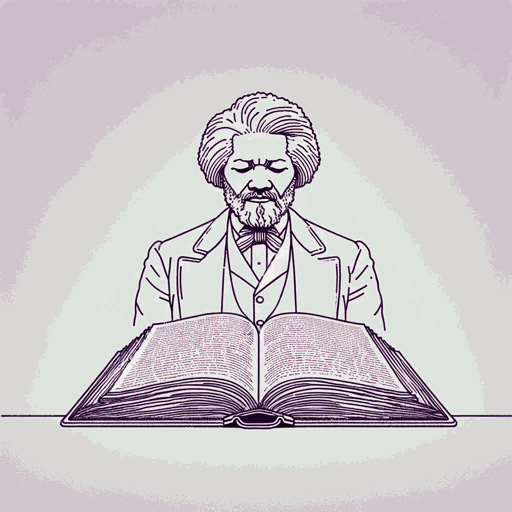56 pages • 1 hour read
David W. BlightFrederick Douglass: Prophet of Freedom
Nonfiction | Biography | Adult | Published in 2018A modern alternative to SparkNotes and CliffsNotes, SuperSummary offers high-quality Study Guides with detailed chapter summaries and analysis of major themes, characters, and more.
Chapters 16-18Chapter Summaries & Analyses
Chapter 16 Summary: “Secession: Taught by Events”
After Douglass’s flight overseas, he goes immediately to seek refuge at the home of his old friend Julia and her new husband. In Europe, the orator is once again welcomed, and he makes the most of his exile by reigniting enthusiasm for American abolition in Britain. After a six-month sojourn, Douglass is unexpectedly called home by the news of his youngest daughter Anna’s untimely death from brain fever. Despite his fears of prosecution and a Senate investigation of the Harper’s Ferry incident, the government loses interest in pursuing Douglass because 1860 is an election year.
Douglass continues to vacillate between his support for the radical abolition party and the necessity of voting Republican to effect meaningful change. Blight writes, “Douglass’s political fluctuations in 1860 were hardly unique; his public editorials were the searching efforts of a black leader to comprehend an amalgam of political interests and a party that seemed to both despise and champion his people” (322).
The Republican party is more interested in suppressing the interests of Southern plutocrats than in ending slavery. Douglass is especially skeptical of Abraham Lincoln as the next president. Once slave states begin to secede, Douglass fears that Lincoln will choose compromise over emancipation to ensure national stability.
Featured Collections
American Civil War
View Collection
Black History Month Reads
View Collection
Books on U.S. History
View Collection
Civil Rights & Jim Crow
View Collection
Inspiring Biographies
View Collection
Politics & Government
View Collection
Pulitzer Prize Fiction Awardees &...
View Collection
War
View Collection


